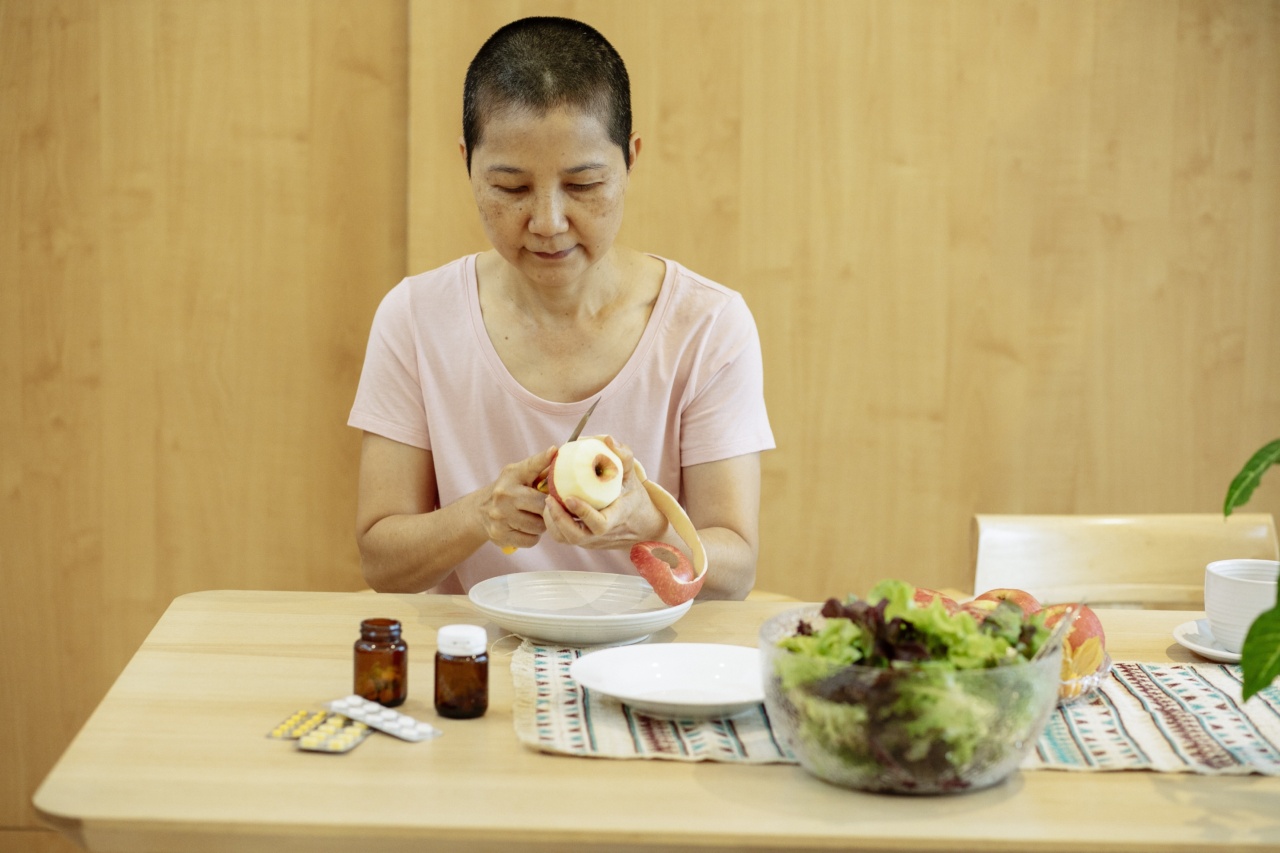Having a balanced diet and healthy food habits is pivotal in maintaining a healthy lifestyle. The human body needs nourishment to function properly, and the food choices we make can greatly affect our health.
When it comes to lung cancer, certain foods and dietary patterns have been linked to increasing the risk of the disease. Let’s dive in and explore some of these culprits.
Processed Meats
Processed meats like bacon, ham, and sausages are high in nitrates and nitrites, chemicals used for preserving meat and adding flavor. These chemicals can react with certain amino acids to form carcinogenic compounds like nitrosamines.
Several studies have linked regular consumption of processed meats to an increased risk of lung cancer. In fact, according to a study conducted by the World Health Organization, eating just 50 grams of processed meat daily increases the risk of colon cancer by 18%.
Additionally, processed meats have high levels of saturated fats and sodium, which can contribute to other health problems like heart disease and stroke.
Charred Foods
Grilling, frying, or roasting food at high temperatures can cause it to char, forming chemicals that can be harmful to health.
Heterocyclic amines (HCAs) and polycyclic aromatic hydrocarbons (PAHs) are two of the common carcinogenic compounds formed when meats are cooked at high temperatures. These chemicals can damage DNA in cells and trigger cancer. Charred meats, especially those cooked well-done or burnt, have been linked to an increased risk of lung cancer, along with other types of cancer like colon and stomach cancer.
Foods High in Saturated Fat
Diets high in saturated fats have been associated with an increased risk of various types of cancer, including lung cancer. Saturated fats are mostly found in animal products like red meat, cheese, butter, and cream.
Studies suggest that high intake of dietary fat can lead to inflammation and oxidative stress, which can contribute to the development of cancer cells. Additionally, diets high in saturated fats are also linked to obesity, which is a risk factor for lung cancer and other types of cancer.
Alcohol
Excess consumption of alcohol has been linked to various types of cancer, including lung cancer. According to the National Cancer Institute, people who drink heavily have a higher risk of developing lung cancer than non-drinkers.
Alcohol can affect DNA repair and hormone production, leading to mutations and abnormal cell growth. Additionally, drinking can weaken the immune system and make it harder for the body to fight off cancerous cells.
Sugar and Refined Carbohydrates
Foods high in sugar and refined carbohydrates like white bread, cakes, and pastries can spike blood sugar levels and contribute to insulin resistance. This, in turn, can lead to chronic inflammation, which is a risk factor for cancer development.
Studies have also shown that high intake of sugary drinks is associated with an increased risk of lung cancer. Sugar-sweetened drinks have been shown to induce oxidative stress and inflammation, which can contribute to the formation of cancer cells.
Salt-Preserved Foods
Certain foods preserved with salt, like pickles, salted fish, and salted meat, have been identified as risk factors for lung cancer.
The high salt content in these foods can damage the lining of the digestive tract and promote inflammation, which can lead to cancer. Additionally, salted fish and meat can contain high levels of nitrates, which can form carcinogenic nitrosamines in the body.
Artificial Sweeteners
Artificial sweeteners like aspartame, saccharin, and sucralose are used as zero-calorie substitutes for sugar. However, studies have linked regular consumption of these sweeteners to an increased risk of cancer, including lung cancer.
Artificial sweeteners can break down into chemical compounds like formaldehyde and methanol, which are toxic to cells and can cause DNA damage. Moreover, these sweeteners can affect gut health and metabolic pathways, which can contribute to cancer development.
Fried Foods
Fried foods like french fries, fried chicken, and doughnuts are high in unhealthy fats and calories. Studies have linked regular consumption of fried foods to an increased risk of various types of cancer, including lung cancer.
The high temperature used in frying can produce harmful compounds like acrylamide, which is formed when potatoes and grains are fried at high temperatures. Acrylamide has been classified as a probable human carcinogen by the International Agency for Research on Cancer.
Processed and Packaged Foods
Processed and packaged foods like chips, crackers, and cookies are high in added sugars, unhealthy fats, and preservatives. These foods provide little to no nutrition and are often a source of empty calories.
Regular consumption of processed foods has been linked to an increased risk of various types of cancer, including lung cancer. These foods can cause inflammation and oxidative stress in the body, which can contribute to cancer development.
Your Diet Can Make a Difference
The foods we eat can greatly impact our health, and making healthy choices can help reduce the risk of developing lung cancer.
A diet rich in fruits, vegetables, whole grains, and lean protein sources like fish and poultry can provide essential nutrients and antioxidants that promote overall health. Avoiding or limiting processed foods, sugary drinks, and foods high in unhealthy fats can reduce the risk of developing various types of cancer, including lung cancer.






























